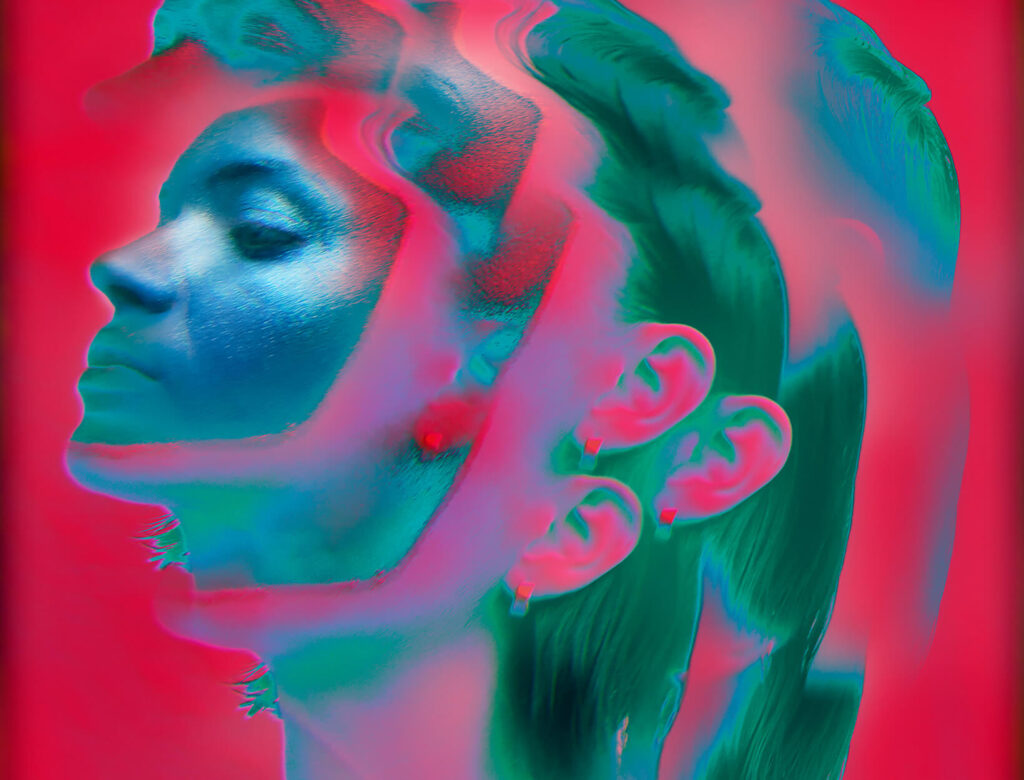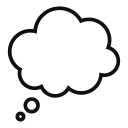[ad_1]
What It Feels Like to Light Travel


Fascinating Phenomena
When I was first asked if I wanted to light travel, the only response I could muster was: “Huh?” But after a little research, I was all in.
Light travel is a practice pioneered by neurologist and psychologist Dirk Proeckl and clinical psychologist and psychotherapist Engelbert Winkler. Flashing light patterns, most commonly facilitated by a lamp called Lucia N°03, theoretically allow you to enter a deep meditative state, effortlessly—without the mental focus required to watch your thoughts, quiet your mind, or focus on your breath. It’s like a light-induced meditation.
I soon found myself lying down on a pleasantly cushioned, sheer-draped canopy bed with a Lucia N°03 light positioned above my head. Theresa Peoples, a Lucia N°03 light practitioner who guides people through light travel at her home studio, placed headphones over my ears and pressed play on a soothing soundtrack. (The Lucia N°03 light lamp, which has one halogen light in the center surrounded by eight LED lights, is connected to a computer program. The person guiding your session—Peoples, in my case—controls everything from a laptop, stopping and starting the program and adjusting the intensity based on your preference.)
After I closed my eyes and Peoples turned on the Lucia N°03 lamp, I immediately saw vibrant, kaleidoscope-like fractal patterns as if they were playing across a screen on my eyelids. Within minutes, my thoughts began to float away before I could complete a sentence. And then my mind chatter stopped completely. I was in a fixed state of awe, unaware of time and space. I was light traveling.
I can’t remember much else about my 90-minute session (which seemed like 10 minutes), except that it felt extremely relaxing and a bit out of this world. And afterward, it took a few minutes of wiggling my toes, sipping warm herbal tea, and nibbling dried white mulberries to reawaken my senses and feel like I was fully in my body again.
Ideally, it’s best to light travel at night, catch a ride home, and immediately go to bed. I went in the afternoon, though, and needed to get my daughter from school. Somehow, even driving in LA traffic, I felt extremely calm (in a good, safe-to-drive way). That feeling lasted for a couple of days.
The Effects of Lucia Light
Essentially, the purpose of the Lucia N°03 light is to guide you into what’s called an alpha-theta hypnagogic state. It’s a stage where our brain waves are somewhere between the alpha (8 to 13 hertz) and theta (4 to 7.9 hertz) frequencies—between relaxation and a deep meditative state that evokes creativity and lucid dreaming.
What’s happening in the brain during the session? How is flashing light so impactful, even with your eyes closed? We asked Jamie M. Zeitzer, PhD, an associate professor in the Department of Psychiatry and Behavioral Sciences at Stanford University. “Exactly how it works, no one’s quite sure,” says Zeitzer. Scientists do know that the flashing light synchronizes or entrains the brain to (more or less) harmonize in a way that it normally doesn’t, unless you’re sleeping or experiencing a seizure. And the eyelids act as a light filter (about 90 percent of light is blocked), but plenty still reaches the brain to have an effect.
There is not much research on this therapy, but there are some budding hypotheses that light therapy triggers the increase of certain neurotransmitters, like acetylcholine (a prominent neurotransmitter throughout the body). It’s also possible that there are changes in the sensitivity of the thalamus, a brain region known for its role in functions like the sleep-and-wake cycle, pain, senses (except smelling), cognition, arousal, and motor skills.
Where to Go Light Traveling
It’s worth a try if you’re open to experiencing light travel without any expectation of a specific outcome—a light exploration, so to speak. But going to a trusted professional is important. “The exact frequency and how they’re applied can [deliver] very different effects on the brain,” says Zeitzer. IntoMeSea in Santa Monica offers light travel sessions for one or two people at a time. Flower of Light offers individual, couples, and group light sessions at its home studio and does local home visits in the greater Los Angeles area.
Warning: If you have a history of light-induced epileptic seizures, this therapy may trigger seizures during your session. You can be tested by your doctor with an EEG to determine whether a seizure is likely to occur during a session, but there will always be some risk.
The Lucia N°03 light is not a medical device, but we always recommend consulting your doctor prior to trying a new therapy.
This article is for informational purposes only, even if and regardless of whether it features the advice of physicians and medical practitioners. This article is not, nor is it intended to be, a substitute for professional medical advice, diagnosis, or treatment and should never be relied upon for specific medical advice. The views expressed in this article are the views of the expert and do not necessarily represent the views of goop.
[ad_2]
Source link

